Review: The Life and Times of a Sentinel (By VCN)
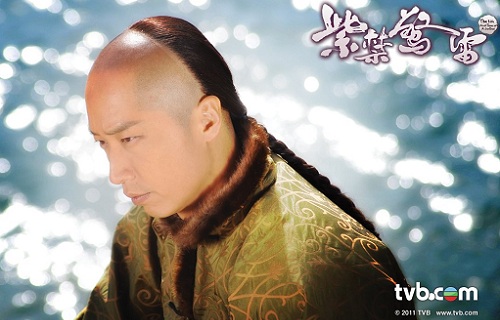
The Life and Times of a Sentinel <紫禁驚雷>
Hong Kong TVB Drama, 2011
Producer: Leung Choi Yuen
Scriptwriters: Ng Siu Tung and Sit Kar Wah
Genre: Historical Fiction
Number of episodes: 26
Rating: ![]()
Cast
Steven Ma as “Nip Dor Po”
Kenneth Ma as “Fuquan” or “Prince Yu”
Ching Hor Wai as “Bumbutai,” the Grand Empress Dowager
Power Chan as “Emperor Kangxi”
Selena Li as “Cheuk Chi Ying” or “Princess Duen Min”
Elaine Yu as “Man Kwan,” the Imperial Noble Consort of Kangxi
Natalie Tong as “Kwai Lun,” the Second Princess Consort
Lau Kong as the monk, Dor Po’s mentor
Cheung Kwok Keung as “Cheuk Shu Tong”
Evergreen Mak as “Po Chai”
Jack Wu as “Ha Seen”
Stephen Wong as “Nap Lan Sing Tak”
Tsui Wing as” Changning” or “Prince Gong”
Christine Kuo as “Kin Ching,” the Fifth Princess Consort
The Introduction
The Life and Times of a Sentinel is a 26-episode Hong Kong TV drama based on historical events taking place in the Forbidden City of China during the late 17th century. In the early years of the Qing Dynasty, ethnic strife plagued the kingdom. Manchu and Han were ordered to live apart so that each race could “live in peace.” To win Han acquiescence, Emperor Kangxi resurrected the 1647 decree that “Manchu and Han are one family.”
The Synopsis
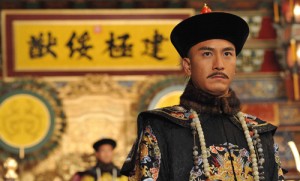 Using historical events as its background, The Life and Times of a Sentinel examines the possibility of peaceful coexistence between Manchu and Han. Alongside this theme rises the fictional question: Who is the rightful heir to Emperor Shunzhi’s (Sunny Chan) throne? Does it belong to Emperor Kangxi (Power Chan), the incumbent ruler for the last 25 years, or his elder brother, Fuquan, Prince Yu (Kenneth Ma)? Facing the threat of civil war, royal family members and imperial court officials are summoned to unravel the mystery of the Emperor Shunzhi’s sudden death and his designated heir to the throne. The story unfolds with a flashback to the final days of Shunzhi’s reign while treachery, misguidance, revenge, incest and moral corruption pepper the storyline. Ostensibly, the story is about a power struggle between the Grand Empress Dowager (Ching Hor Wai) and her grandson, Fuquan, but it also follows the tragic life of a sentinel, Nip Dor Po (Steven Ma), as he discovers love, brotherhood and ultimately the truth about his origin.
Using historical events as its background, The Life and Times of a Sentinel examines the possibility of peaceful coexistence between Manchu and Han. Alongside this theme rises the fictional question: Who is the rightful heir to Emperor Shunzhi’s (Sunny Chan) throne? Does it belong to Emperor Kangxi (Power Chan), the incumbent ruler for the last 25 years, or his elder brother, Fuquan, Prince Yu (Kenneth Ma)? Facing the threat of civil war, royal family members and imperial court officials are summoned to unravel the mystery of the Emperor Shunzhi’s sudden death and his designated heir to the throne. The story unfolds with a flashback to the final days of Shunzhi’s reign while treachery, misguidance, revenge, incest and moral corruption pepper the storyline. Ostensibly, the story is about a power struggle between the Grand Empress Dowager (Ching Hor Wai) and her grandson, Fuquan, but it also follows the tragic life of a sentinel, Nip Dor Po (Steven Ma), as he discovers love, brotherhood and ultimately the truth about his origin.
The Title
The Chinese title of this drama series is very dramatic. Literally translated, it means “Frightening Thunder of the Purple Forbidden [City],” but the English title is The Life and Times of a Sentinel. Given the content, this title is accurate in that it does follow Nip Dor Po as he transcends his simple origins as a citizen of Han descent to a high ranking imperial sentinel and much, much more in the conclusion. But, what part of the title represents the power struggle? Again, TVB manages to deliver us another weakly descriptive and mediocre English title.
The Content
By harnessing the intrigue from one of the greatest mysteries of the Qing Dynasty, TVB has discovered a treasure chest of interesting plotlines. Lacking true historical relevance, TVB scriptwriters concocted this fictional tale of a royal power struggle between brothers. The convoluted relationships and powerful emotions in this drama series had the potential to enthrall and captivate viewers. To my dismay, TVB scriptwriters lacked the will power to produce a drama that is a true tour de force and a manifesto of their creative abilities.
TVB will continue to be TVB with its signature style of unabashedly recycling old thematic material and plot devices from previous dramas. The usual broken families and lost children themes become crucially significant in this drama. The abortion by herbal scent scheme also replays itself here. Even well-written dialogue from previous dramas finds a home in this series. Just when the series begin to feel like a junkyard of déjà-vu’s, the scriptwriters throw the viewers a curve ball: the surprise ending in the finale.
The unforeseen ending is contextually insubstantial and a complete structural catastrophe. Where in the other 25 episodes did the writer develop Nip Dor Po’s relationship to Emperor Shunzhi ? A mere hint appears when Kei Man Cheong (Lai Lok Yi) abandons his search for his infant son to settle other affairs. This scene leaves the audience slightly mystified because his irrationality and lack of affection for the infant is quite dubious. The only other inference to Dor Po’s true identity is when his foster father returns a gold locket to him minutes prior to the parent’s dual suicide. This hint is once again so subtle that few viewers would pay careful enough attention to notice it. Then, Kei Man Cheong’s (Felix Lok) excessive joy in being reunited with Dor Po completely debunks any remote suspicion that the audience may have that Dor Po is not his biological offspring. There is little to no motive binding the rising action to the ultimate conclusion.
While the ending failed, the suspenseful events leading to the conclusion was adequate. For 19 hours, the audience was beguiled into believing that Dor Po would be the righteous arbiter, who would settle right for wrong with his superior martial skills. But, he comes out being more and somehow worse for it, jumping into the foray for sovereign power in what was essentially just a royal family feud. Honestly, I felt deceived and cheated of a bigger, more revelatory ending that would offer better insight and closure. In a word, the finale is a disappointment.
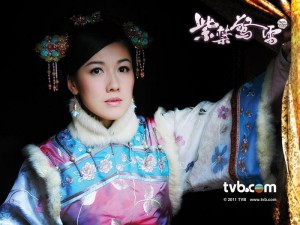 In summary, very little occurs in the 19.5 hours of action. Nothing happens that did not already exist in the beginning: Kangxi is still in power; Fuquan is still withheld from politics; Dor Po is still a law-abiding citizen of the Qing Empire; Kwai Lun (Natalie Tong) still has her husband’s undivided attention; Man Kwan (Elaine Yiu) still is not in love with her husband, the Emperor; and Chi Ying (Selena Li) is still as lost and confused as ever about life in general. Essentially, the characters are back exactly where they had started with a few odd twists. Albeit disappointing, it is to TVB’s credit that nothing did occur. In historical drama, nothing can really happen without altering historical facts and timeline. So, I do applaud the producers for their efforts in trying to preserve history.
In summary, very little occurs in the 19.5 hours of action. Nothing happens that did not already exist in the beginning: Kangxi is still in power; Fuquan is still withheld from politics; Dor Po is still a law-abiding citizen of the Qing Empire; Kwai Lun (Natalie Tong) still has her husband’s undivided attention; Man Kwan (Elaine Yiu) still is not in love with her husband, the Emperor; and Chi Ying (Selena Li) is still as lost and confused as ever about life in general. Essentially, the characters are back exactly where they had started with a few odd twists. Albeit disappointing, it is to TVB’s credit that nothing did occur. In historical drama, nothing can really happen without altering historical facts and timeline. So, I do applaud the producers for their efforts in trying to preserve history.
Lastly, why is the actual resolution so long? Why is the ending so drawn out and strongly reminiscent of the conclusion to Lord of the Rings: Return of the King? During the last few years, TVB has developed a penchant for long endings–long melancholic ones for that matter. I suppose it is to validate the less than obvious notion that Fuquan is not an evil villain, but in fact a tragic figure of misguidance. It would seem that TVB scriptwriters feel that characters are somehow exonerated from their crimes if their lives are spared and if their minds retreat into a world of insanity. What an utterly depressive ending, if it was not for the faint symbol of hope in the last scene that Manchu and Han can coexist peacefully through the marriage of Fung Sheung Hei (Katy Kung), a woman of Han descent, and Yan Chak (Fred Cheng), a Manchu.
Minus the old plot devices and the haphazard conclusion, I found most of this series watchable and relatively enjoyable. Call it an acquired taste for Qing Dynasty period dramas if you like, but I have to admit that there were moments in this series which I found genuinely interesting too. Besides the suspense, rare patches of dialogue are actually original. To TVB’s credit, the scriptwriters did create some fresh analogies. In particular, I was amused by Dor Po’s humorous comment from episode 4 on Fuquan’s controlled existence: “Well, you must have either an abusive wife at home, or your mother must be too strict with you. From the looks of it, you must have an abusive wife.” Similarly, Man Kwan’s letter to Fuquan is sentimentally poignant. Though inconsistently done, some of the filmed sequences and flashbacks are also artistically and effectively incorporated into the series.
The Acting
The acting in this The Life and Times of a Sentinel is surprisingly good for TVB standards. There are notable performances by Kenneth Ma as Fuquan and and Ching Hor Wai as the Grand Empress Dowager. Kenneth Ma delivers the many faces of Fuquan with credibility; his myriad facial expressions reveal the pathos of a tragic figure severely misguided by false promises. Ching Hor Wai’s Grand Empress Dowager is equally successful. Her pretense to righteousness is so convincing that the audience is tempted to sympathize with her, although she commits high treason by deceiving the Emperor(s).
Steven Ma’s performance as Nip Dor Po is also exceptional; however, he would be fine without his overused expression of impatient contempt in episode 26. This facial expression has been excessively incorporated into the typecast roles that Steven Ma portrays so well, ranging from Land of Wealth to Ghost Writer and now, The Life and Times of a Sentinel.
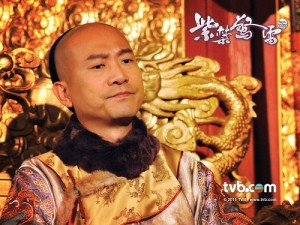 Conversely, Power Chan’s Emperor Kangxi is unconvincing, failing to deliver any regal affectation. Throughout most of the performance, he is overly affable and does very little to convey a sense of authority. Specifically, he points too much, leans precariously on too many posts, sits on too many unlikely places, such as balustrades, and crosses his legs all too much to be a credible monarch. Keeping in mind that fecundity is a crucial aspect of ancient civilizations, such as the Qing Dynasty, neither men or warriors of ancient society cross their legs. Hence, Emperors should not cross their legs. Moreover, Power Chan crosses his legs on the imperial throne in episode 7! Artistic license aside, the accuracy and credibility of a historic character depreciate when artists commit such acting foibles. (For examples, refer to historic portraits of eminent figures, especially that of Qing Emperors.) Fortunately for Power, his defining moment arrives in episode 26, where he adequately redeems his performance as the Emperor. Nowhere else in the series does he project himself as a convincing monarch.
Conversely, Power Chan’s Emperor Kangxi is unconvincing, failing to deliver any regal affectation. Throughout most of the performance, he is overly affable and does very little to convey a sense of authority. Specifically, he points too much, leans precariously on too many posts, sits on too many unlikely places, such as balustrades, and crosses his legs all too much to be a credible monarch. Keeping in mind that fecundity is a crucial aspect of ancient civilizations, such as the Qing Dynasty, neither men or warriors of ancient society cross their legs. Hence, Emperors should not cross their legs. Moreover, Power Chan crosses his legs on the imperial throne in episode 7! Artistic license aside, the accuracy and credibility of a historic character depreciate when artists commit such acting foibles. (For examples, refer to historic portraits of eminent figures, especially that of Qing Emperors.) Fortunately for Power, his defining moment arrives in episode 26, where he adequately redeems his performance as the Emperor. Nowhere else in the series does he project himself as a convincing monarch.
The Conclusion
Overall, The Life and Times of a Sentinel could have been a more successful production. However, the scriptwriters did it an injustice, recycling too much old material and concluding an interesting story with a resolution that is clearly underdeveloped. As a result, I give this serial drama a rating of 3.5 out of 5 stars.
A Brief Aside
For the record, The Life and Times of a Sentinel holds no historical legitimacy whatsoever. This was strictly a creative piece of fiction, although genuine names of historical figures are used. According to historical documents, Fuquan, Changning, Duen Min, Bumbutai, Man Kwan, Nap Lan Sing Tak and of course Emperor Kangxi truly existed. Their kinships to each other were authentic, but the events in this series were not substantiated by any historical facts.
This review was written by VCN, a Contributing Writer at JayneStars.com.

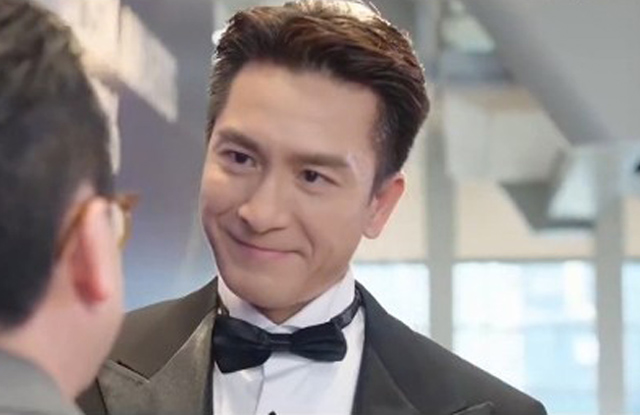


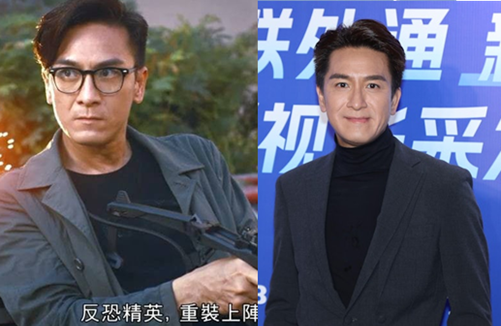
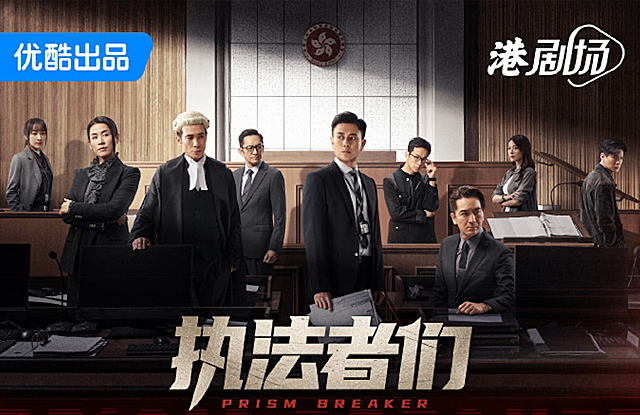
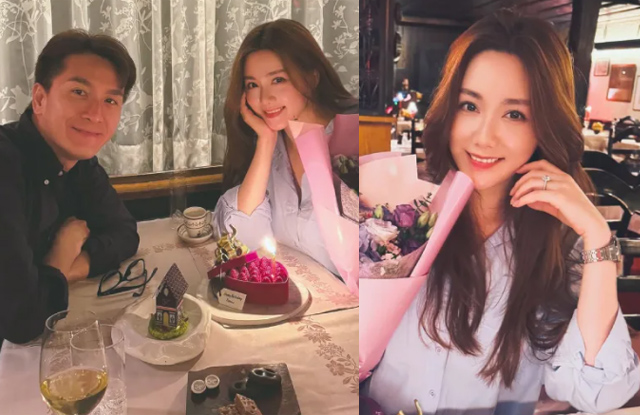
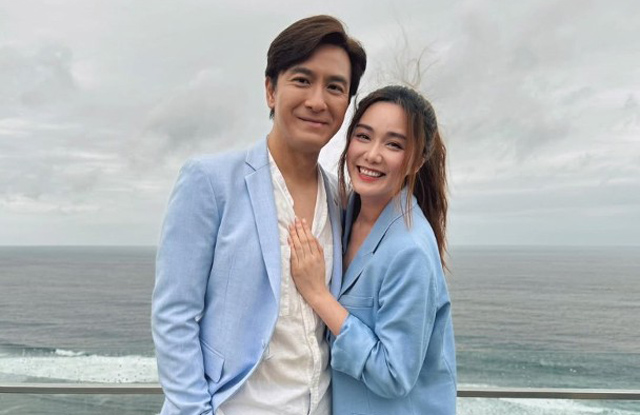


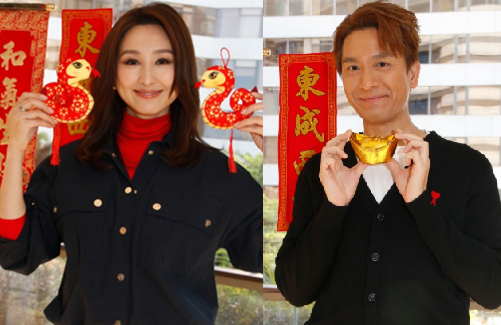
” Hence, Emperors should not cross their legs.”
Actually Qing isn’t such an old dynasty and crossing legs is common. Have seen quite a lot of Qing crossing legs. However my issue with Power Chan crossing leg is he has yet to reach that stage where his young emperor can cross his legs so regally and yet so nonchalantly. The issue is not crossing legs itself. It is when, why and how the legs is crossed. In this series, with so many complaints, my deduction is Power himself could not convey that imperial authority to convincingly and so casually cross his leg. As I have said, have a watch at Yong Zheng Wang Chao and Kang Xi Di Guo to know how to do it properly and at which stage.
“historic portraits”
As you said, portraits. During portraits, even the Queen of England sits straighter. Portraits is not a judge as to how they live their lives on an everyday basis. I believe a more affable emperor such as Kangxi is famous for would be more casual with his ministers when not in the official hall, such as in his own private study.
By the way I noticed you write Kangxi was in power for 25 years at the start of this series, so yes crossing leg shouldn’t be an issue. Therefore I believe the issue points to Power Chan. I agree; he is a great actor BUT very few can portray an emperor convincingly, more so one as prolific and much talked about like Kangxi himself.
I think Power is a great actor, but he’s probably not lead actor material. He doesn’t exude enough charisma and drive – and that’s likely also why he fell flat as emperor.
As for the show, stopped watching after episode 10. Just basically forgot about it so that shows how into it I was.
VCN,
“Essentially, the characters are back exactly where they had started with a few odd twists. Albeit disappointing, it is to TVB’s credit that nothing did occur.”
I can understand how you feel, where the amount of time the audience had invested did not yield the emotional return that the drama brought upon. There is a sense that the audience is emotionally cheated, or that the story was propped up in a way in which conflict resolution was not achieved satisfactorily.
It is one reason why books or films that conclude with, “and then I woke up; it was all a dream” are so unsatisfying. It makes you feel as if nothing had happened. Or those worthless “daydream sequences” that are often peppered in many TVB dramas, or the countless crowd scenes in modern dramas, where everyone and their grandparents have a say in the scene, but nothing substantial occurs as a result.
Absolutely correct, Jayne! Many thanks for posting my review as usual.
I just want to say Kenneth Ma looks great with a mustache. Very manly and fits this character.
In 1647, Shunzhi was still the emperor. Kangxi ascended the throne in 1662. That’s the error in the review!
The decree was instituted by Prince Dorgon in 1647 and resurrected by Kangxi in later years.
I read the review very quickly, but I didn’t think I had read anything about the acting of the actresses, except Ching Hor Wai for the role of Grand Empress Dowager. How were the other actresses, such as Selena Li, Elaine Yiu, Grace Wong, etc., doing?
@ sandcherry: I don’t think you would really want to know my honest opinion of their acting. 🙂 Thanks for reading my review!
There is no harm to mention it. I love to have your opinion.
I know they were all doing minor roles in that drama series.
@ vcn
Hmmm, I didn’t finish the show so I can’t really attest to their acting. However, in the episodes I did watch, I actually enjoyed both Elaine and Natalie – two actresses I usually find pretty weak. Even though both characters were written in typical TVB caricatures, Natalie sold her “evilness” better than Kenneth. And Elaine was suitable as the genteel, kind woman – even if I could see her character grate in the long run.
@ sandcherry: As Man Kwan, Elaine Yu was adequate in portraying the gentle and passive concubine. In this series, she is meant to represent the “ideal woman” and she delivered this grace effectively. Hence, her female counterparts seem deficient in a variety of feminine characteristics and interests. To attest this, she is desired by both Fuquan and Kangxi.
Natalie Tong’s Kwai Lun is at best inconsistent. There were some very fun scenes between her husband and her where they chide each other in a very modern sense. She was cantankerous enough to make one believe her role as the jealous wife, but she did not do quite as well as the estranged wife. What annoyed me most about her performance was that she seemed to be reciting most of her lines and not acting in a lot of her scenes.
Selena Li’s Chi Ying/Duen Min was not effective at all for me. I can’t decide whether it was her acting or her role that bothered me most. Her character was the most inconsistent character across the board. Everything about her from her identity to her feelings are uncertain to the audience.
Well, that’s my two cents worth for the female actresses. Signing off for now.
VCN
Thanks for your input though you did not think highly of the female artistes. I know it was a drama series for men and not for women. However, a good artiste should perform well even in a minor role.
Do you remember Louise Lee Sze-Kee in “The Other Truth”? Hers was only a minor role, but her acting impressed all of us.
Sandcherry, I tend to agree with you that many actors/actresses feel that just because they are assigned a supporting role instead of a major lead, they don’t need to perform to the best of their abilities. However, I don’t think that was the case with these ladies. To me, they just need to further develop their acting skills. On the other hand, most of the short roles in “The Other Truth” were well-executed. Keep in mind that many of those roles were performed by much more seasoned actors/actresses, who are capable of conveying more emotions and expressions.
@sandcherry,
I totally agree with you that even if you are only acting in a minor role that you should still act well… There are times that guest stars seem to stand out more rather than the leading stars. I have seen that a lot.
One of the minor roles that just comes to my head as a role that really stands out is Jin She Lang Jun(a character in JY’s novel Bi Xue Jian). Although his role is a pretty minor one, it is an important role and they have always had veteran or at least decent actors play it( Miu in the 80s, Kong Wah in the 2000 version and Vincent Jiao in the 2007 China version).
I actually didn’t like Kenneth’s acting in here at all. He looked bored all the time.
I frankly didn’t like ANYONE in here, and when I finished the show I felt like I wasted my time.
I think he should rightly look “bored” since the Grand Empress Dowager has suppressed him from politics and he leads mostly an indolent life of luxury. In his character’s opinion, even being the head of the Sentinels is beneath him. Remember that he desires to be the emperor. Haahaa …
Watched this in the summer and the ending was so sudden. I think that this deserves a higher viewership rating than some of the other dramas out there 🙂
Wait no I didn’t mean that it deserved a higher rating because of the ending! I meant in general!